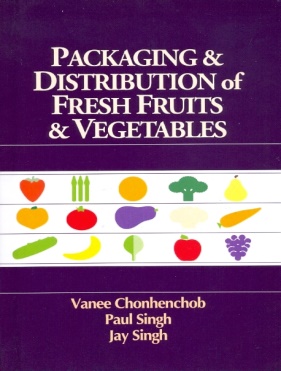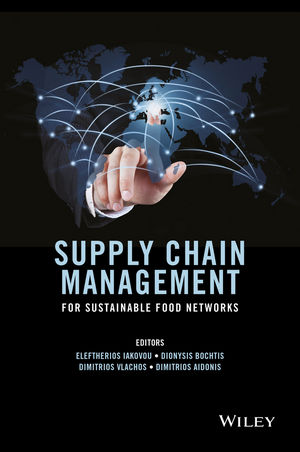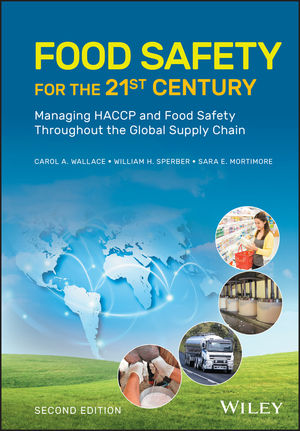CONAGRA LAMB WESTON: An in-depth discussion with Mark Hayden, senior VP of supply chain and distribution sales
Talk with Mark Hayden and it’s quickly clear that he’s well “grounded” in the foodservice business.
Talk with Mark Hayden and it’s quickly clear that he’s well “grounded” in the foodservice business.
A 17-year veteran at ConAgra Foods Lamb Weston, Hayden knows that Lamb Weston’s core french fry business literally is just one step removed from the ground and any given season’s potato crop. As senior vice president of supply chain management and distributor sales, Hayden also knows that it’s an unpardonable sin to short any customer - particularly those in the quick-service or casual restaurant field. A major chain customer without any french fries? Perish the thought.
It’s this dedication that leads Hayden to begin any discussion with a focus on the fundamentals.
“Agriculture-based businesses have been severely challenged with the explosion of commodity costs, as well as swings of demand on land with farmers growing other crops - rather than potatoes,” he notes. “We saw the issue coming and we took some raw material purchasing positions that were challenging. However, supply is the most important thing in this business and - while trying to mitigate costs as best as possible - we managed to keep our customers supplied. That’s important because our product is a restaurant’s critical profit driver . . . When we commit to you as a supplier, you simply don’t have to worry about supply.”
Of course, foodservice operators have much more on their minds these days.
“When you get into these types of economic conditions, operators need someone to bring them true growth opportunities,” says Hayden. “Compared to others, we always have brought a bigger view to the total french fry business – in trying to bring solutions or create products that address certain operational and menu needs. Most of what we’ve developed comes from our interacting with customers.
“We’ve realized, however, that the consumer was missing from the equation and so we’ve been doing even more work to learn what consumers are looking for from the restaurant experience – not just a french fry experience.”
Taking sales further
Hayden says Lamb Weston turned a corner two years ago and has become more of a true solutions partner. The difference? For national chain accounts – and now regional chains – Lamb combines consumer insights research with results from foodservice operator focus groups and customizes data for every sales presentation.
Actually, Hayden calls them “concept” presentations.
“We present broader concepts to customers that engage them on every level – including product innovation, marketing, sales and even technical services,” says Hayden. “Our team will visit an account and we’ll present – based on consumer insights, operator insights and our own feelings – how an operator would benefit from certain new products, limited-time offers, signage and branding.
“We also talk about how to execute the entire plan through their entire system and discuss the financial implications and benefits. We also talk about the supply chain impact and how they literally handle product from storage all the way through to the store-level fryer.”
Lamb Weston takes presentations even further when it comes to potato options. A proprietary “ampliFRY” software program helps sales reps recommend profitable, complementary menu additions. The modeling program analyzes various data inputs (including consumer preferences, current menu items and even geographic-demographic area profile) and then recommends additional products.
“French fries are not that different than drinks,” notes Hayden. “You don’t go into a restaurant where they say, ‘We only have one type of beverage.’ The reality is that they have many more options, which helps to eliminate any veto vote of the restaurant.
“It’s the same thing with french fries and appetizers. You can’t have everything but you should have more than one. Our recommendation isn’t based on Lamb Weston’s advice. It’s truly based on third-party research. In fact, we guarantee we’ll deliver the results [from ampliFRY]. If the second fry recommendation doesn’t perform after a reasonable period time, we’ll refund the money.”
Actually, Hayden calls them “concept” presentations.
“We present broader concepts to customers that engage them on every level – including product innovation, marketing, sales and even technical services,” says Hayden. “Our team will visit an account and we’ll present – based on consumer insights, operator insights and our own feelings – how an operator would benefit from certain new products, limited-time offers, signage and branding.
“We also talk about how to execute the entire plan through their entire system and discuss the financial implications and benefits. We also talk about the supply chain impact and how they literally handle product from storage all the way through to the store-level fryer.”
Lamb Weston takes presentations even further when it comes to potato options. A proprietary “ampliFRY” software program helps sales reps recommend profitable, complementary menu additions. The modeling program analyzes various data inputs (including consumer preferences, current menu items and even geographic-demographic area profile) and then recommends additional products.
“French fries are not that different than drinks,” notes Hayden. “You don’t go into a restaurant where they say, ‘We only have one type of beverage.’ The reality is that they have many more options, which helps to eliminate any veto vote of the restaurant.
“It’s the same thing with french fries and appetizers. You can’t have everything but you should have more than one. Our recommendation isn’t based on Lamb Weston’s advice. It’s truly based on third-party research. In fact, we guarantee we’ll deliver the results [from ampliFRY]. If the second fry recommendation doesn’t perform after a reasonable period time, we’ll refund the money.”
“It comes down to having the right product at the right place at the right time to fill our customer’s need,” he says.
Of course, that’s easier said than done against a backdrop of rising energy costs, periodic delays at rail switching yards and diminished over-the-road carrier capacity due to rising bankruptcies.
Not wanting to disrupt service nor elevate its costs, Lamb Weston has gone on the offensive to push results. Since 2006-07, it has upgraded its rail fleet (switching from smaller and more expensive C02 refrigeration cars to larger mechanical cars, each capable of storing 170,000 lbs) and eliminated unnecessary third-party warehouse locations. Meanwhile, Hayden and his team have pushed customer service with Lamb Weston’s remaining third-party distribution centers.
“We have internal warehouses and we understand the costs,” he notes. “When we needed to address some service issues, we flipped our entire focus to the service we need to provide. Once we started to engage our warehouse partners, we found ways to drive their costs down and get them to margin structures they wanted. This true collaboration now keeps our customers happier and warehouses running more smoothly.”
Overall, Lamb Weston has shifted to a model of third-party warehouses used either for shipping plant direct to customers or receiving and redistributing product on a forward inventory basis. The company also subdivides forward inventory DC’s into those servicing strictly national accounts and those providing product-mixing services for broad-line distributors.
“Our goal has been to get closer to the customer and provide faster returns on inventory,” Hayden says. “We’re providing faster order cycles – shipping orders in 48 hours versus what used to take five days.”
Talk with Mark Hayden and it’s quickly clear that he’s well “grounded” in the foodservice business.
A 17-year veteran at ConAgra Foods Lamb Weston, Hayden knows that Lamb Weston’s core french fry business literally is just one step removed from the ground and any given season’s potato crop. As senior vice president of supply chain management and distributor sales, Hayden also knows that it’s an unpardonable sin to short any customer - particularly those in the quick-service or casual restaurant field. A major chain customer without any french fries? Perish the thought.
It’s this dedication that leads Hayden to begin any discussion with a focus on the fundamentals.
“Agriculture-based businesses have been severely challenged with the explosion of commodity costs, as well as swings of demand on land with farmers growing other crops - rather than potatoes,” he notes. “We saw the issue coming and we took some raw material purchasing positions that were challenging. However, supply is the most important thing in this business and - while trying to mitigate costs as best as possible - we managed to keep our customers supplied. That’s important because our product is a restaurant’s critical profit driver . . . When we commit to you as a supplier, you simply don’t have to worry about supply.”
Of course, foodservice operators have much more on their minds these days.
“When you get into these types of economic conditions, operators need someone to bring them true growth opportunities,” says Hayden. “Compared to others, we always have brought a bigger view to the total french fry business – in trying to bring solutions or create products that address certain operational and menu needs. Most of what we’ve developed comes from our interacting with customers.
“We’ve realized, however, that the consumer was missing from the equation and so we’ve been doing even more work to learn what consumers are looking for from the restaurant experience – not just a french fry experience.”
Taking sales further
Hayden says Lamb Weston turned a corner two years ago and has become more of a true solutions partner. The difference? For national chain accounts – and now regional chains – Lamb combines consumer insights research with results from foodservice operator focus groups and customizes data for every sales presentation.
Actually, Hayden calls them “concept” presentations.
“We present broader concepts to customers that engage them on every level – including product innovation, marketing, sales and even technical services,” says Hayden. “Our team will visit an account and we’ll present – based on consumer insights, operator insights and our own feelings – how an operator would benefit from certain new products, limited-time offers, signage and branding.
“We also talk about how to execute the entire plan through their entire system and discuss the financial implications and benefits. We also talk about the supply chain impact and how they literally handle product from storage all the way through to the store-level fryer.”
Lamb Weston takes presentations even further when it comes to potato options. A proprietary “ampliFRY” software program helps sales reps recommend profitable, complementary menu additions. The modeling program analyzes various data inputs (including consumer preferences, current menu items and even geographic-demographic area profile) and then recommends additional products.
“French fries are not that different than drinks,” notes Hayden. “You don’t go into a restaurant where they say, ‘We only have one type of beverage.’ The reality is that they have many more options, which helps to eliminate any veto vote of the restaurant.
“It’s the same thing with french fries and appetizers. You can’t have everything but you should have more than one. Our recommendation isn’t based on Lamb Weston’s advice. It’s truly based on third-party research. In fact, we guarantee we’ll deliver the results [from ampliFRY]. If the second fry recommendation doesn’t perform after a reasonable period time, we’ll refund the money.”
Taking sales further
Hayden says Lamb Weston turned a corner two years ago and has become more of a true solutions partner. The difference? For national chain accounts – and now regional chains – Lamb combines consumer insights research with results from foodservice operator focus groups and customizes data for every sales presentation.Actually, Hayden calls them “concept” presentations.
“We present broader concepts to customers that engage them on every level – including product innovation, marketing, sales and even technical services,” says Hayden. “Our team will visit an account and we’ll present – based on consumer insights, operator insights and our own feelings – how an operator would benefit from certain new products, limited-time offers, signage and branding.
“We also talk about how to execute the entire plan through their entire system and discuss the financial implications and benefits. We also talk about the supply chain impact and how they literally handle product from storage all the way through to the store-level fryer.”
Lamb Weston takes presentations even further when it comes to potato options. A proprietary “ampliFRY” software program helps sales reps recommend profitable, complementary menu additions. The modeling program analyzes various data inputs (including consumer preferences, current menu items and even geographic-demographic area profile) and then recommends additional products.
“French fries are not that different than drinks,” notes Hayden. “You don’t go into a restaurant where they say, ‘We only have one type of beverage.’ The reality is that they have many more options, which helps to eliminate any veto vote of the restaurant.
“It’s the same thing with french fries and appetizers. You can’t have everything but you should have more than one. Our recommendation isn’t based on Lamb Weston’s advice. It’s truly based on third-party research. In fact, we guarantee we’ll deliver the results [from ampliFRY]. If the second fry recommendation doesn’t perform after a reasonable period time, we’ll refund the money.”
Supply chain strategies
While Hayden promotes ampliFRY for sales, his supply chain goal is: simplify.“It comes down to having the right product at the right place at the right time to fill our customer’s need,” he says.
Of course, that’s easier said than done against a backdrop of rising energy costs, periodic delays at rail switching yards and diminished over-the-road carrier capacity due to rising bankruptcies.
Not wanting to disrupt service nor elevate its costs, Lamb Weston has gone on the offensive to push results. Since 2006-07, it has upgraded its rail fleet (switching from smaller and more expensive C02 refrigeration cars to larger mechanical cars, each capable of storing 170,000 lbs) and eliminated unnecessary third-party warehouse locations. Meanwhile, Hayden and his team have pushed customer service with Lamb Weston’s remaining third-party distribution centers.
“We have internal warehouses and we understand the costs,” he notes. “When we needed to address some service issues, we flipped our entire focus to the service we need to provide. Once we started to engage our warehouse partners, we found ways to drive their costs down and get them to margin structures they wanted. This true collaboration now keeps our customers happier and warehouses running more smoothly.”
Overall, Lamb Weston has shifted to a model of third-party warehouses used either for shipping plant direct to customers or receiving and redistributing product on a forward inventory basis. The company also subdivides forward inventory DC’s into those servicing strictly national accounts and those providing product-mixing services for broad-line distributors.
“Our goal has been to get closer to the customer and provide faster returns on inventory,” Hayden says. “We’re providing faster order cycles – shipping orders in 48 hours versus what used to take five days.”
Looking for a reprint of this article?
From high-res PDFs to custom plaques, order your copy today!






